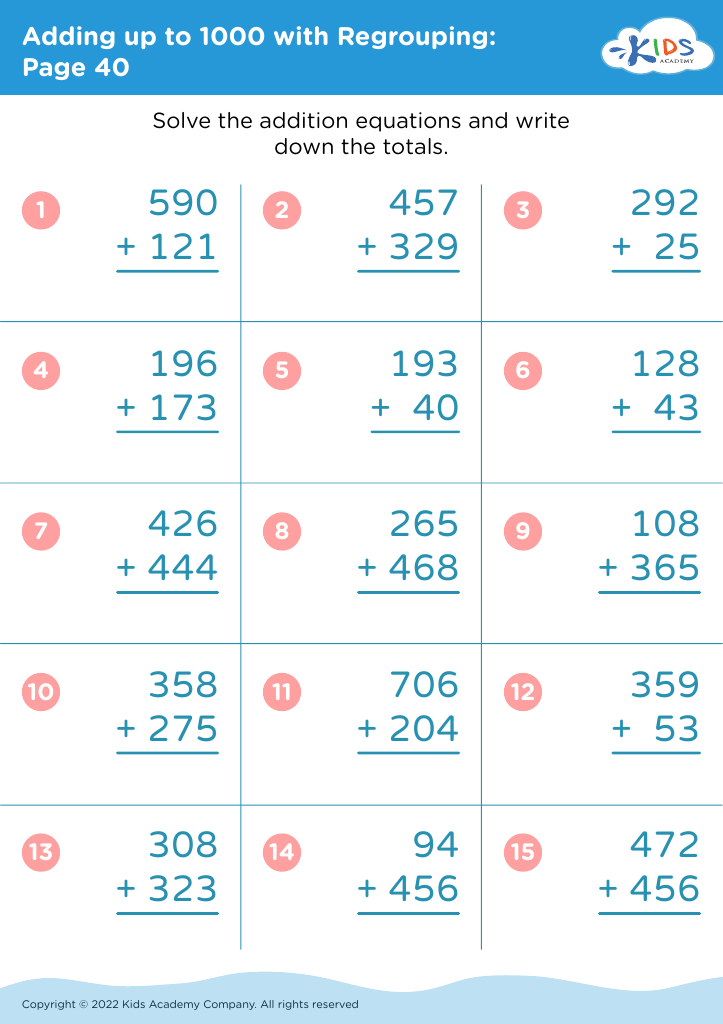Learn subtraction Worksheets for Ages 4-8
5 filtered results
-
From - To
Discover our engaging "Learn Subtraction Worksheets for Ages 4-8," designed to make learning math fun and interactive! These worksheets feature colorful illustrations and diverse activities that capture your child's interest while building essential subtraction skills. Perfect for early learners, they reinforce concepts through playful exercises, such as counting objects, solving simple equations, and engaging puzzles. Whether used at home or in the classroom, our worksheets enable children to grasp subtraction in a supportive environment. Encourage a love for mathematics early on with our expertly crafted resources that promote confidence and achievement in young learners. Start exploring today for a brighter math future!
Learning subtraction is a foundational skill in early childhood education that sets the stage for future mathematical understanding. For children ages 4-8, mastering subtraction lays the groundwork for more advanced concepts in math, such as addition, multiplication, and division. Parents and teachers should care about teaching subtraction because it fosters critical thinking and problem-solving skills essential for academic success.
At this developmental stage, children are naturally curious and eager to explore. Engaging them in subtraction through interactive games, visual aids, and real-life situations makes the learning process fun and meaningful. This approach not only aids retention but also builds confidence in their mathematical abilities.
Furthermore, subtraction is more than just numbers; it helps children understand the concept of 'taking away,' which they encounter in everyday situations (like sharing or counting down). By mastering subtraction, children can improve their overall math fluency, enabling them to solve problems more efficiently.
Finally, recognizing the importance of subtraction promotes a positive attitude towards learning math, reducing anxiety around the subject in the long term. Encouraging enthusiasm for math at an early age cultivates lifelong learners who are not only capable of facing challenges but also excited to explore the world of numbers.











.jpg)














